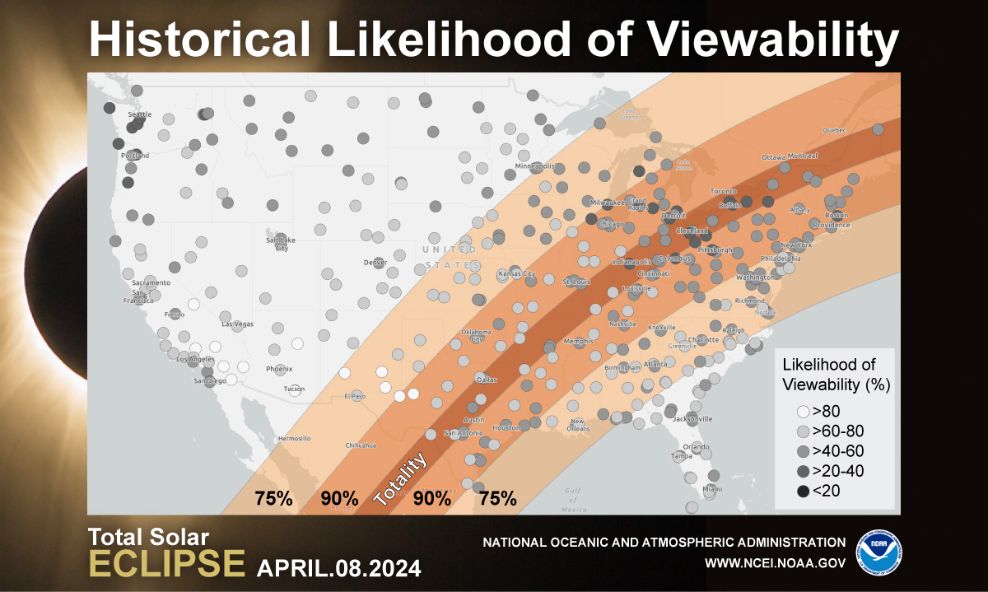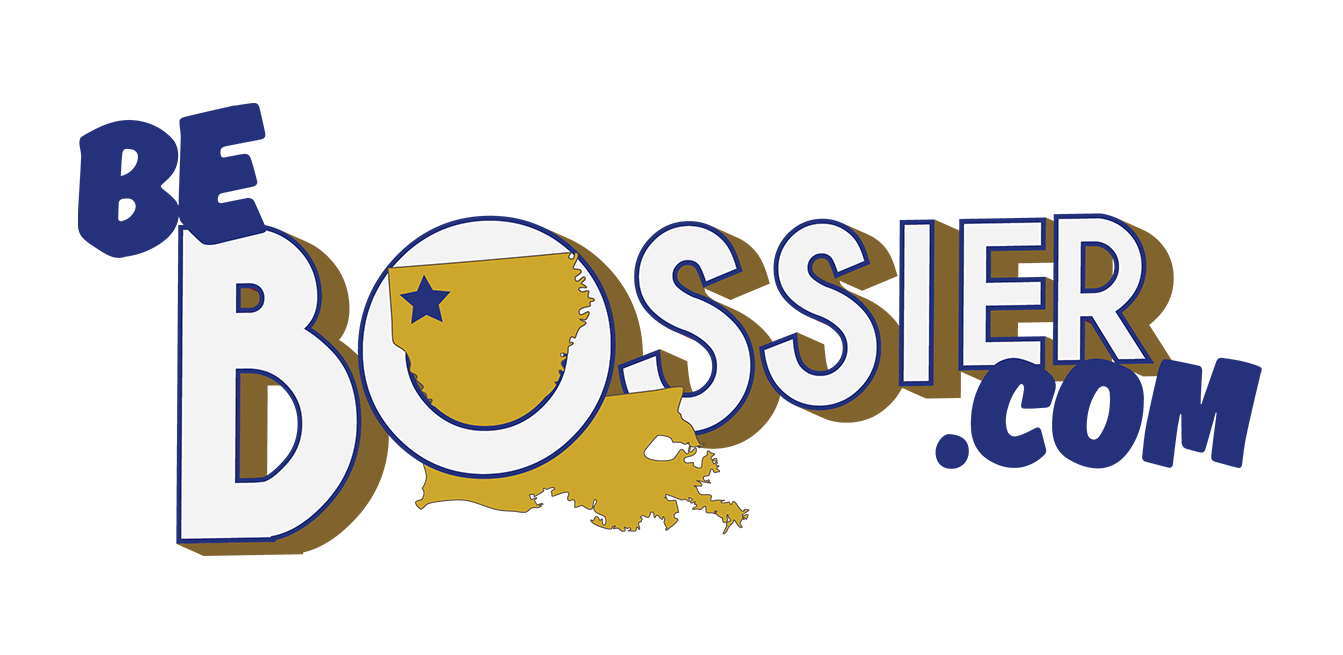Watching the Spectacular Total Eclipse

On April 8th between 1:40 and 1:50 p.m. and lasting just under five minutes, the moon will creep over the face of the sun, offering us a rare look at the sun’s corona. If conditions are right, according to NASA, we might even see a “coronal mass ejection – a large eruption of solar material,” during which “viewers will have a better chance to see prominences – which appear as bright, pink curls or loops coming off the Sun.”
Total eclipses are a rare phenomenon, with only 16 crossing the U.S. during the past 150 years, according to Matt Hemingway, Senior Meteorologist with the National Weather Service. Even if it is cloudy the effects of the eclipse will be visible and darkness will still fall. “The National Weather Service will provide graphical information on our website https://www.weather.gov/shv/ in the week before the eclipse to update viewers on cloudy or rainy conditions,” said Hemingway.

Dr. Cran Lucas, president of the Shreveport-Bossier Astronomical Society, will give a presentation for all ages on the eclipse at the Bossier Central library at 6:00 p.m. tonight. “We will cover a little of the history of eclipses in past human cultures, the nature of different types of eclipses (partial, annular and total), the places to be for the path of totality (as well as what to look for during totality), how to view the eclipse, and how to photograph the eclipse.”
The path of the eclipse will cross Mexico and enter the U.S. in an eastward arc starting just north of Nuevo Laredo and ending in Maine before crossing into Canada. We are just a few miles from the eastern edge of the 115-mile-wide path of totality and will see the eclipse at 98%. It will be tempting to just look up and watch but, if you do, make sure you wear protective solar eclipse eyewear or risk lifelong eye damage.
“Do NOT look at the Sun through a camera lens, telescope, binoculars, or any other optical device while wearing eclipse glasses or using a handheld solar viewer—the concentrated solar rays will burn through the filter and cause serious eye injury,” warned NASA. “Always supervise children using solar viewers.”
Solar eclipse glasses are extremely dark, around 1,000 times darker than sunglasses, and should conform to the ISO 12312-2 international standard. The glasses vary in price from $2 up and are available in Bossier at Lowe’s, Walmart Vision & Glasses, Vision 4 Less, America’s Best Contacts & Eyeglasses and other local businesses. There are fakes out there, so check https://eclipse.aas.org/eye-safety/how-to-tell-if-viewers-are-safe to make sure you are protected.
“At 98%, it will be a first in my lifetime,” said longtime Shreveport-Bossier Astrological Society member Bob Abraham of Bossier. “It will get really dark, and we will see a sunset all the way around the sky. It will get so dark the brightest stars will come out and the streetlights will probably come on. But do not view the eclipse unless you have eye protection. The sun can be very unforgiving.”
Discover more from Be Bossier
Subscribe to get the latest posts sent to your email.
